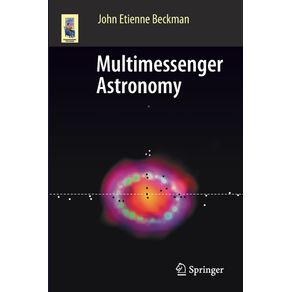| Edição | 0 |
|---|---|
| Selo | Sophia Perennis |
| Idioma | Inglês |
| Autores | Robert Powell |
| Acabamento | Capa Dura |
| Quantidade de Páginas | 224 |
| Origem | Literatura Estrangeira |
 Mind Over Matter
Mind Over Matter
HARPERCOLLINS
R$ 130,66 ou até 2x sem juros An Introduction to Comets
An Introduction to Comets
Springer Nature B.V.
R$ 593,70 ou até 3x sem juros Physiography
Physiography
Legare Street Press
R$ 186,34 ou até 3x sem juros Eureka
Eureka
Alpha Editions
R$ 99,04 à vista Field Guide to Meteors and Meteorites
Field Guide to Meteors and Meteorites
Springer Nature B.V.
R$ 288,70 ou até 3x sem juros Unmasking Europa
Unmasking Europa
Springer Nature B.V.
R$ 265,41 ou até 3x sem juros Masks of the Universe
Masks of the Universe
Cambridge University Press
R$ 370,71 ou até 3x sem juros The Opus Majus of Roger Bacon - Volume 2
The Opus Majus of Roger Bacon - Volume 2
Cambridge University Press
R$ 594,10 ou até 3x sem juros Mensageiro das estrelas
Mensageiro das estrelas
RECORD
R$ 69,90 à vista O despertar do universo consciente
O despertar do universo consciente
RECORD
R$ 69,90 à vista Teoria e prática para a preparação de exames do ensino superior
Teoria e prática para a preparação de exames do ensino superior
Almedina
R$ 59,00 à vista Deus, astronomia e ufologia
Deus, astronomia e ufologia
Telha
R$ 65,00 à vistaSpringer Nature Customer Service Center LLC
R$ 1.251,97 ou até 3x sem jurosLulu Press
R$ 95,56 à vistaSpringer Nature Customer Service Center LLC
R$ 573,18 ou até 3x sem juros The Untold Stories of the Space Shuttle Program
The Untold Stories of the Space Shuttle Program
Springer Nature B.V.
R$ 312,16 ou até 3x sem juros Spezielle und allgemeine Relativitätstheorie
Spezielle und allgemeine Relativitätstheorie
Springer Nature B.V.
R$ 435,23 ou até 3x sem juros Mind Over Matter
Mind Over Matter
HARPERCOLLINS
R$ 130,66 ou até 2x sem juros An Introduction to Comets
An Introduction to Comets
Springer Nature B.V.
R$ 593,70 ou até 3x sem juros Physiography
Physiography
Legare Street Press
R$ 186,34 ou até 3x sem juros Unmasking Europa
Unmasking Europa
Springer Nature B.V.
R$ 265,41 ou até 3x sem juros The Ever Changing Sky
The Ever Changing Sky
Cambridge University Press
R$ 572,34 ou até 3x sem juros The Opus Majus of Roger Bacon - Volume 2
The Opus Majus of Roger Bacon - Volume 2
Cambridge University Press
R$ 594,10 ou até 3x sem juros Apollo 11
Apollo 11
Books Express Publishing
R$ 349,12 ou até 3x sem juros O despertar do universo consciente
O despertar do universo consciente
RECORD
R$ 69,90 à vista MyNews Explica - Astronomia
MyNews Explica - Astronomia
Edições 70
R$ 59,00 à vista Plenitude Do Cosmos
Plenitude Do Cosmos
Cultrix
R$ 54,00 à vista O desenvolvimento da Astronomia no Brasil: Resgatando a História
O desenvolvimento da Astronomia no Brasil: Resgatando a História
Ed Voe
R$ 72,90 à vistaSpringer Nature Customer Service Center LLC
R$ 1.396,26 ou até 3x sem jurosSpringer Nature Customer Service Center LLC
R$ 719,25 ou até 3x sem juros Astrology and Religion Among the Greeks and Romans
Astrology and Religion Among the Greeks and Romans
Repro Books Limited
R$ 125,96 ou até 2x sem juros The Orbs Around Us
The Orbs Around Us
Legare Street Press
R$ 175,88 ou até 3x sem juros Eureka
Eureka
Alpha Editions
R$ 99,04 à vista Multimessenger Astronomy
Multimessenger Astronomy
Springer Nature B.V.
R$ 249,52 ou até 3x sem juros Masks of the Universe
Masks of the Universe
Cambridge University Press
R$ 370,71 ou até 3x sem juros Gravitation and Spacetime
Gravitation and Spacetime
Cambridge University Press
R$ 690,69 ou até 3x sem juros The Greek Cosmologists
The Greek Cosmologists
Cambridge University Press
R$ 456,19 ou até 3x sem juros Apollo 11
Apollo 11
Books Express Publishing
R$ 349,12 ou até 3x sem juros O despertar do universo consciente
O despertar do universo consciente
RECORD
R$ 69,90 à vista A Astronomia Nova de Kepler: um estudo sobre a determinação da órbita elíptica de Marte
A Astronomia Nova de Kepler: um estudo sobre a determinação da órbita elíptica de Marte
Dialética
R$ 69,90 à vistaXlibris NZ
R$ 191,25 ou até 3x sem jurosMartino Fine Books
R$ 156,03 ou até 3x sem juros Plenitude dos Cosmos
Plenitude dos Cosmos
Cultrix
R$ 52,00 R$ 42,64 à vistaSpringer Nature Customer Service Center LLC
R$ 1.802,58 ou até 3x sem jurosSpringer Nature Customer Service Center LLC
R$ 1.416,03 ou até 3x sem juros